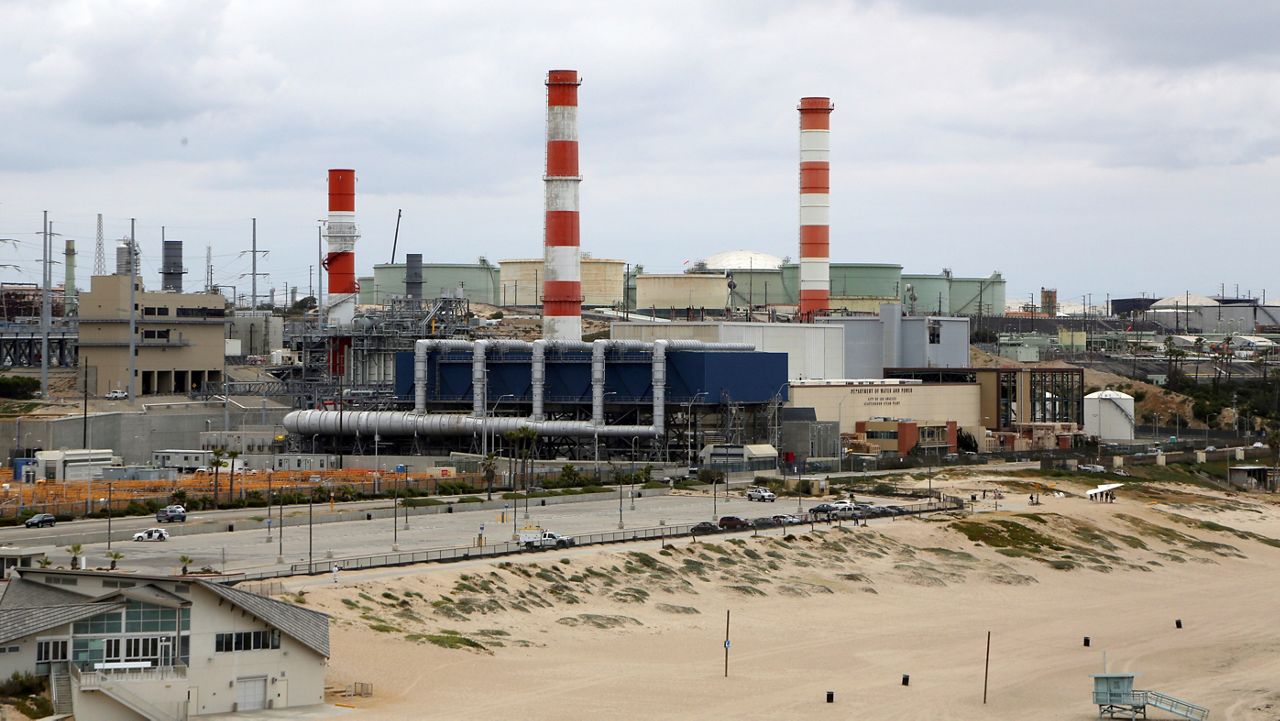LOS ANGELES (CNS) — The Los Angeles City Council delayed a final vote Tuesday on a much-debated plan to shift the Scattergood Generating Station, a power plant in Playa del Rey, to be powered by green hydrogen instead of natural gas.
The item, which passed 8-3 on its first reading last week, was scheduled to be heard again on Tuesday to be adopted, but it was delayed until Jan. 11 — after the council’s winter recess.
The council voted last week to authorize a competitive bid proposal process for the estimated $800 million plan, over the objections of some environmental groups concerned about the impact of green hydrogen on the climate and lack of transparency from officials.
The dynamics of the vote could change given that there is a new council, with five new council members taking their seats on Tuesday. Two of the members who voted in favor and two who voted against it the first time are no longer on the council.
Jasmin Vargas, senior policy adviser at Food & Water Watch, told City News Service she was glad to see the delay to give the new council members a chance to learn more about the issue before voting.
Council President Paul Krekorian last week called the plan necessary for Los Angeles to meet its goal of achieving 100% clean energy by 2035.
Without a significant generating resource at Scattergood, the city would see energy reliability issues, according to Krekorian, who added that the council was voting on just the procurement process.
“This is barely the first step on the beginning of a potential journey toward green hydrogen at Scattergood,” Krekorian said, adding that the council will be engaged in answering questions ahead of full approval.
According to a resolution approved by the Board of Water and Power Commissioners in August, the shift to green hydrogen would help the department reach its goal of transitioning to 100% renewable energy by 2035.
But environmental groups have pushed back. According to Food & Water Watch, hydrogen still produces emissions that can threaten the climate, would require more than 122 million gallons of water to power the plant and cost more than solar, wind or battery storage.
“You have no idea what you’re doing today,” Vargas told the council last week. “Having a gas plant, whether it’s hydrogen or natural gas, is still environmental racism.”



